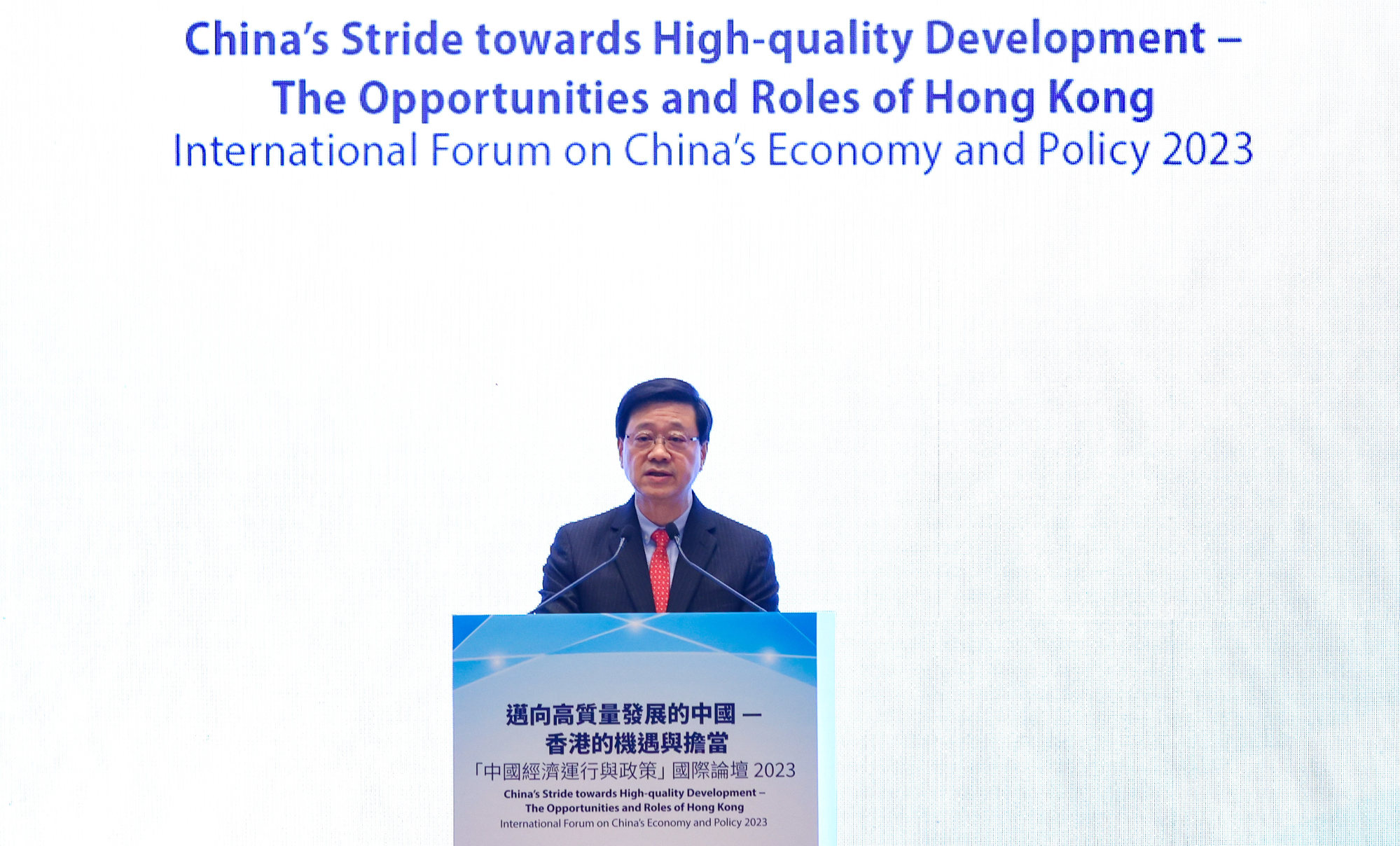Beijing’s top official in Hong Kong calls on financial hub to serve as strong catalyst for country’s development goals
[ad_1]
Beijing’s top official in Hong Kong has called on the financial hub to play a bigger role in the country’s new development paradigm by acting as a strong catalyst for its aim to further open up to the rest of the world.
Zheng Yanxiong, director of the central government’s liaison office in Hong Kong, on Wednesday also said that the city should aim to attract extensive international capital to stop “some nations” from severing the country’s industries and supply chains.
“In the current trend of anti-globalisation, and in the face of challenges posed by some countries trying to make Hong Kong dysfunctional, the city should always uphold its openness,” said Zheng during a 10-minute speech at the International Forum on China’s Economy and Policy 2023.
“By leveraging its free and open business environment, and taking advantage of its close connection with the international economic and trade rules, Hong Kong can serve as a converter to facilitate the country’s institutional opening-up.”

The liaison chief also urged the city to strengthen its status as a global financial centre, and an offshore Renminbi hub, while also actively pursuing international capital in order to stop “some countries” hoping to undermine the country’s industrial ties with the world.
“For Hong Kong to achieve progress in a changing landscape and create new opportunities amid uncertainties, it largely depends on the city’s willingness to embrace change, adaptability and its ability to cope with global changes through high-quality development,” Zheng said.
The new development paradigm of “dual circulation” was introduced by the country in 2020 with a vision to allow domestic and overseas markets to reinforce each other, with the domestic market as the mainstay.
The Beijing official also said the city should commit to innovative development and economic transformation, while also fostering green practises and addressing livelihood issues.
Beijing’s top envoy in Hong Kong warns ‘hostile foreign forces’ still at play
Beijing’s top envoy in Hong Kong warns ‘hostile foreign forces’ still at play
While concluding his speech, Zheng stressed that development could not be achieved without security.
He pointed to punishing criminals who endangered national security in accordance with the law, the district council election and enacting local security legislation under Article 23 of the Basic Law, the city’s mini-constitution, as ways to ensure a safe business environment for global investors and entrepreneurs.
The forum was organised by the Hong Kong government, the Chinese Institute of Hong Kong, and the National Academy of Economic Strategy of the Chinese Academy of Social Sciences. It focuses on the country’s economy, Hong Kong’s unique advantages and changes in the global economic landscape.
National security chief in Hong Kong takes reins at liaison office
National security chief in Hong Kong takes reins at liaison office
Speaking at the same event, Chief Executive John Lee Ka-chiu said Hong Kong would actively seek investment and talent, and expand its worldwide economic and trade networks in an effort to develop the eight major centres specified under the 14th Five-Year national development plan.
The “eight centres” outlined in the plan cover international finance, innovation and technology, cultural exchange, trade, shipping, aviation, legal and dispute resolution services, and intellectual property.
Lee also pledged to actively integrate the city into projects that were part of the national development plan, such as the Belt and Road Initiative and the Greater Bay Area, while maintaining its international ties.
The Belt and Road Initiative is Beijing’s plan to link economies in Asia, Europe and Africa into a China-centred trade network, while the Greater Bay Area refers to a scheme to integrate Hong Kong, Macau and nine mainland Chinese cities into an economic powerhouse.
[ad_2]
Source link





